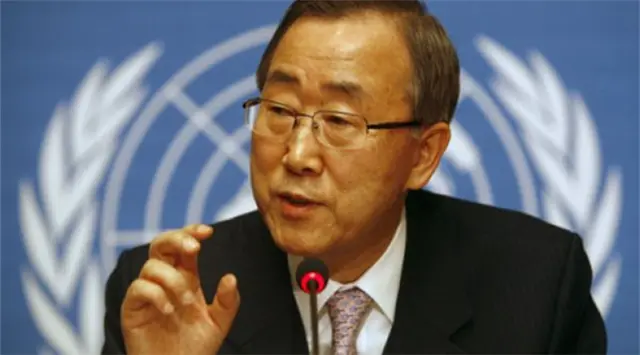World leaders have joined calls by UN chief Ban Ki-moon for improving the global humanitarian situation through conflict prevention and resolution in the ongoing world humanitarian summit held here on May 23-24.
The calls also urge better financing, improvement of the conditions of the vulnerable and reduction of the need for humanitarian assistance.
During the first day of the world humanitarian summit which opened here Monday, world leaders discussed conflict prevention, humanitarian financing, assistance to the vulnerable and ways to reduce the need for aid, at four round-table meetings.
The UN-backed summit, the first of its kind in the world body's history, brought together some 5,200 participants, including 65 heads of state and government and representatives from the public and private sectors.
It aimed at initiating a complete revamp of the current global humanitarian system, which has been in place for decades and is struggling to meet the needs of around 125 million people worldwide.
"We are here to shape a different future," Ban told a grand opening ceremony at Istanbul Congress Center. "Today, we declare: We are one humanity with a shared responsibility."
At the ensuing roundtable discussion, the UN chief pressed world leaders to show political will of a scale and scope not seen in recent years in order to save succeeding generations from "the scourge of war."
"Preventing and peacefully resolving conflict is the biggest difference the international community could make to reduce the overwhelming humanitarian need," he said.
"Violent conflict was the overriding reason why such requests had increased 600 per cent in the last 11 years to more than 20 billion U.S. dollars today," he noted.
For its part, he said, the United Nations would improve its analysis of risk factors by reviewing the capacities of its agencies, funds and programmes to enable an integrated approach to the root causes of conflict.
Turkish President Tayyip Erdogan said the debate on conflict prevention was the most important on the first day's agenda of the summit, as conflict prevention was both the founding reason for the United Nations and also its biggest failure, caused mainly by veto use in the UN Security Council.
He called for a reform of the powerful Security Council, stressing that the fate of humanity could not be left to only five countries -- the permanent members of the council.
German Chancellor Angela Merkel said that early warning, prevention, stabilization and peace consolidation must be part of a tool box of measures to prevent crises, with burdens shared fairly at the international level.
During the roundtable discussion on assisting the vulnerable, Gaylee Smith, Administrator of the United States Agency for International Development, said that her country would host a leaders summit on refugees from a belief that, without systemic changes at scale, states would be unable to meet today's challenges.
The United States would look for funding to be increased by 30 percent and a doubling of global refugees afforded third-country settlement, she said.
While discussing humanitarian financing, Ban said that narrowing the growing gap between aid and people's needs was possible, particularly since estimates had put the total sum requested for humanitarian assistance at about 1 per cent of global military spending.
Later in the day, Ban launched an ambitious scheme aiming to significantly improve the efficiency of humanitarian aid, as part of the efforts to bridge the funding gap.
The UN chief revealed that the Grand Bargain scheme has so far gained endorsement from 18 countries, including such major donors as Japan and the United States, and 16 major aid organizations, including the International Federation of Red Cross and Red Crescent.
The Grand Bargain contains 10 categories of commitments, including greater transparency, more use of cash-based programming, reduction of duplication and management costs and less redtape.
Kristalina Georgieva, European commissioner for budget and human resources, who is a key designer of the scheme, predicted at the ceremony that the program could save at least 1 billion dollars in overheads over the next five years by shifting resources away from draining backroom activities to frontline delivery.
The two-day event is a culmination of a four-year-long preparatory process, including an extensive global consultation with 23,000 stakeholders in 153 countries to identify the key humanitarian challenges facing the world.
It will focus Tuesday on the need to respect the rules of war, enhance preparedness for natural disasters and climate change, and pay more attention to women and children in humanitarian actions.
The summit consists of plenary sessions, roundtable discussions, side events, and an exhibition featuring the humanitarian theme.
At the end of the gathering, a chair's summary will be issued to reflect its outcomes, and some time later a report containing commitments to action will be submitted to the UN General Assembly for follow-up.
(APD)
 简体中文
简体中文

